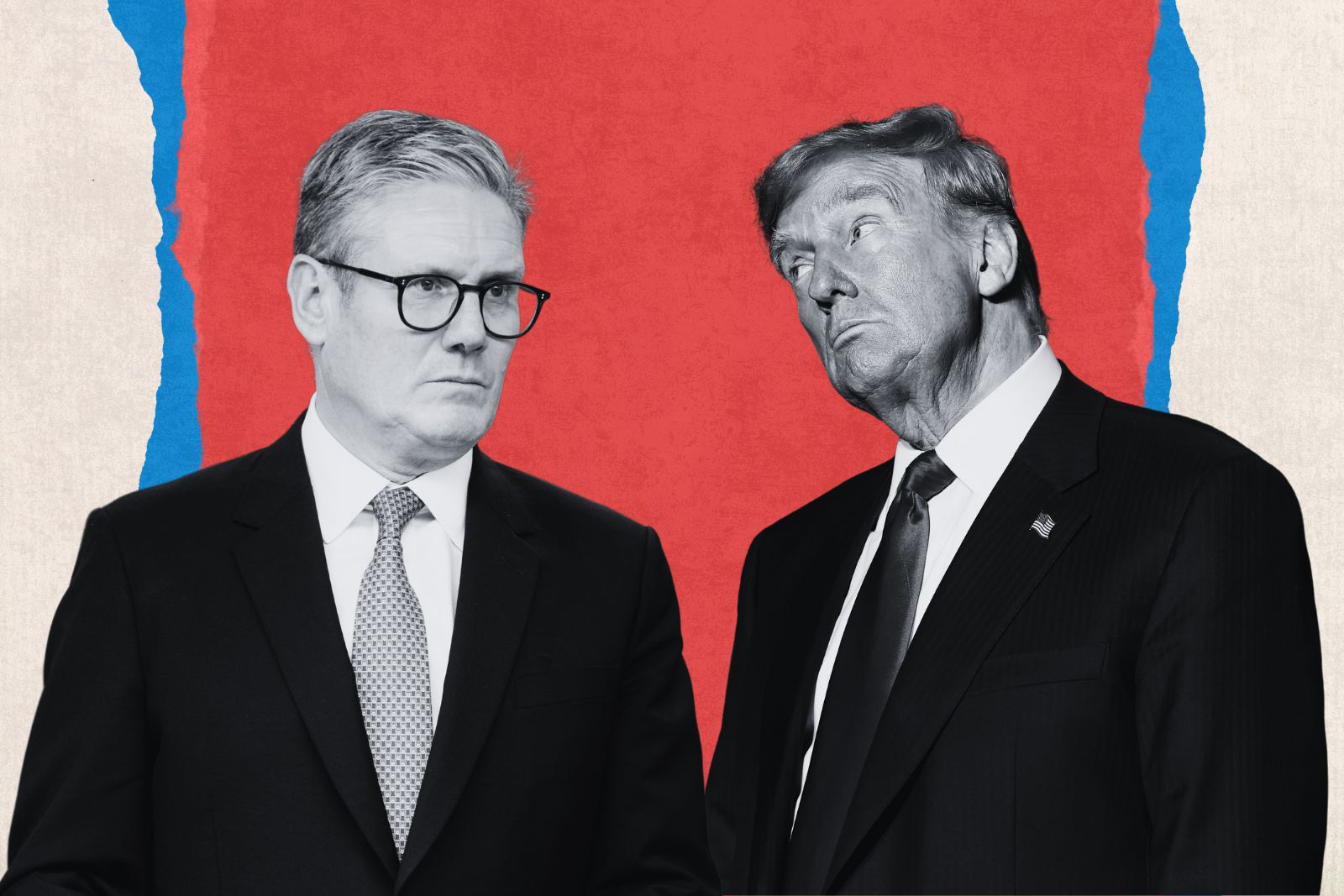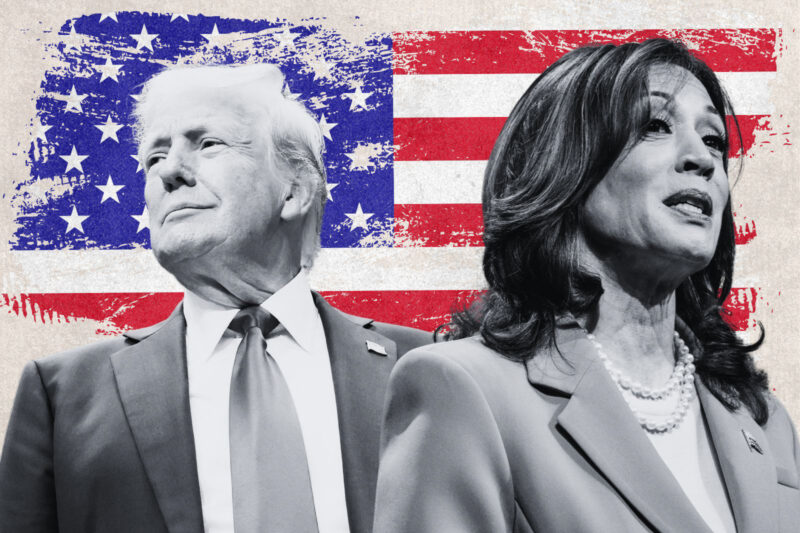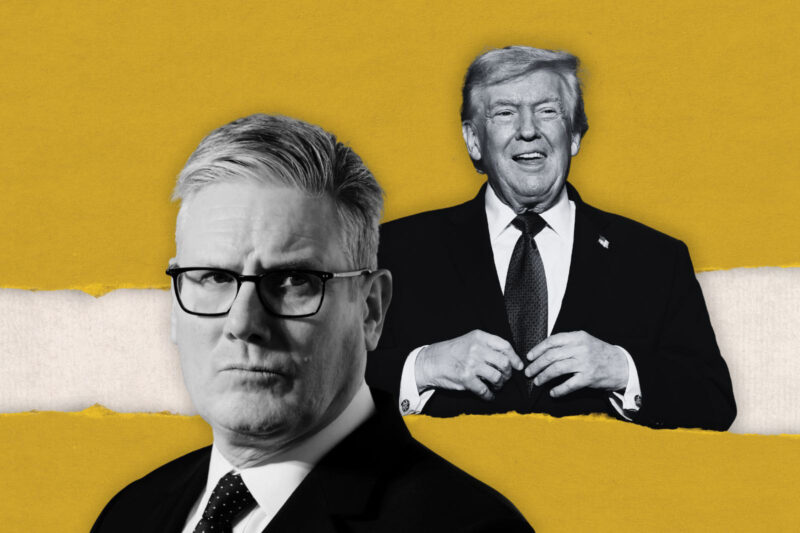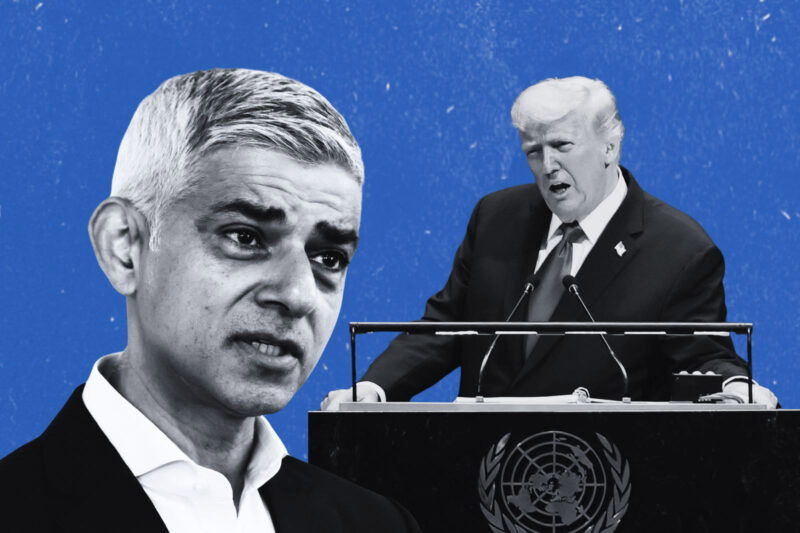Starmer is being tested by Trump’s charge of ‘foreign interference’
While the result of the US election hangs in the balance, so could the country’s ‘special relationship’ with the UK

The so-called “special relationship” between the UK and the US is vital for any British prime minister, and it’s even more crucial in today’s post-Brexit world as Britain finds its new place in the international order. With the US election fast approaching on 5 November, Keir Starmer will be watching closely, fully aware that the outcome will have huge implications for his time as prime minister.
The Labour party naturally leans towards the Democrats, given their shared political values, but with the US race as tight as it is, Starmer has wisely invested time in reaching out to Donald Trump and the Republicans. Just last month, Starmer met with the former president and even had dinner at Trump Tower, which, according to briefings at the time, went well.
However, that progress may now have been derailed by a single LinkedIn post from a Labour staffer. The post revealed that 100 current and former Labour staffers were heading to the US to campaign in key battleground states for Kamala Harris, with a call for others to join.
Unsurprisingly, this did not sit well with Team Trump. They quickly filed a legal complaint with the Federal Election Commission, accusing Labour of making an “illegal foreign campaign contribution and interference” by sending its officials to volunteer for Harris. Billionaire Elon Musk, one of Trump’s biggest supporters, posted on X, the platform he owns, describing it as “illegal”.
The level of outrage and the formal complaint suggests this had caused serious offence, which is far from ideal, especially considering the effort Labour has put into building a relationship with Trump’s team. While in opposition, David Lammy, now foreign secretary, called Trump a “neo-Nazi sympathising sociopath” and a “dangerous clown”. Now that Labour is in government, Starmer is obviously keen to preserve the UK-US special relationship.
Starmer has tried to downplay his party’s involvement in the current scandal, insisting that the government itself isn’t officially tied to these actions. “The Labour party has volunteers who’ve gone over pretty much every election,” Starmer said. “They’re doing it in their spare time, as volunteers.”
Given the similarities between Labour and the Democrats, it makes sense that volunteers may wish to work for both, and having spoken to several Labour insiders at various levels of the party, the vast majority don’t see this as a major issue. In fact, they consider it business as usual. It is fairly common for Labour members and staffers to lend a hand to “sister parties” around the world during elections. Over the years, I’ve spoken to several Labour advisors and staffers who have travelled to the US, Australia, and across Europe to help out on campaigns, and Labour and the Democrats, in particular, have a long history of collaboration and mutual support.
In Tony Blair’s successful 1997 general election, Bill Clinton’s strategist Stanley Greenberg, played a key advisory role. Similarly, Barack Obama’s senior strategist, David Axelrod, was brought on as a senior adviser to the Labour party in the run-up to the 2015 general election.
In both those instances, there was little pushback from the Republicans. This is partly because the Conservatives have their own close relationship with the Republicans, and the US-UK political exchange tends to cut both ways. Trump even endorsed Boris Johnson, while calling Jeremy Corbyn, then Labour leader, “so bad” for the UK. But there’s a difference between individuals taking on advisory roles and what the Republicans are now portraying as a coordinated effort by Labour to send activists to swing states.
What makes this situation more volatile is that it involves Trump — who doesn’t adhere to political norms. He or his team are clearly not happy, and Trump has a history of cutting off relations when he feels slighted. We saw this during Theresa May’s premiership when Kim Darroch, the UK’s ambassador to the US, had to resign after his private cables — calling Trump “inept”, “insecure” and “incompetent”— were leaked. Trump refused to engage with Darroch after that, forcing him to resign.
Trump holds grudges, and that’s what Starmer will be most worried about. A weakened relationship with Trump could severely limit the UK’s influence, especially with potential foreign policy disputes on the horizon if Trump wins. Issues like the funding of Nato and the war in Ukraine could see the UK and US pulling in opposite directions, and if Trump is unwilling to engage with Starmer and the Labour party, it could leave the UK diplomatically isolated from its main ally.
While Starmer did call Trump after the assassination attempt in July, Downing Street sources suggest there are no immediate plans for the prime minister to contact him to smooth things over on this issue. Given that it hasn’t made major headlines in the US, they’re likely hoping it will blow over. If Harris ends up winning the election, Starmer and his team will never think about this again; but if Trump does win in November, Downing Street may find themselves starting from scratch to rebuild relations.
Shehab Khan is an award-winning presenter and political correspondent for ITV News
 Newsletter
Newsletter













